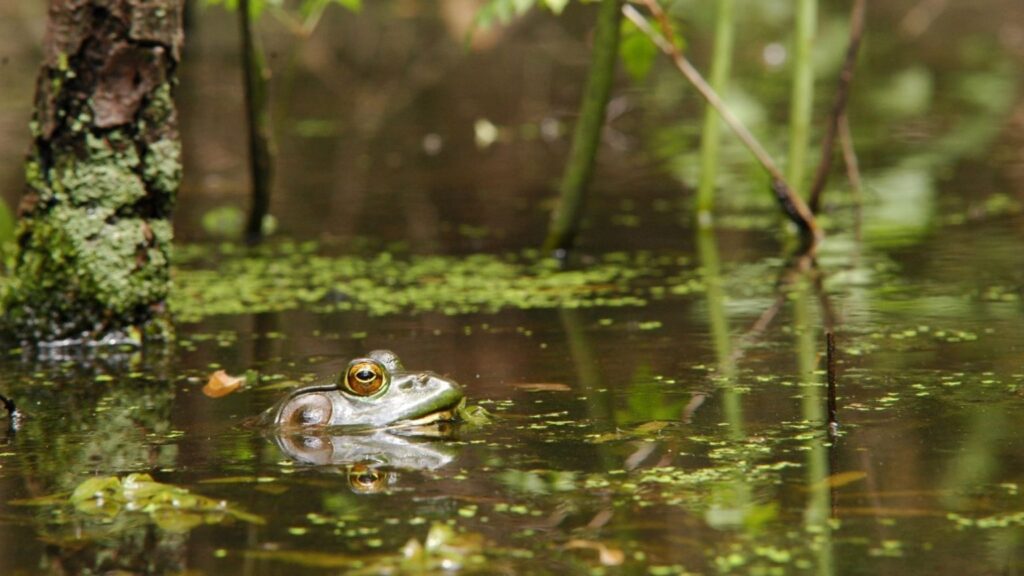Note: If you wish to receive, via e-mail, (1) my weekly newsletter or (2) daily copies of these posts, write to me at rrbates1951@gmail.com. Comments may also be sent to this address. I promise not to share your e-mail with anyone. To unsubscribe, write here as well.
Thursday
Today’s essay on two Mary Oliver April poems expands on a previous post. In one, Oliver does all she can to capture the ecstatic feelings that an April evening arouses in her. In the other, she gives up on words and just points at the peeping frogs.
When I’ve taught “Blossom” in my Intro to Lit class, my biology students have often informed me that all the peeping and croaking is designed to attract a mate. Well aware of this, Oliver appears to have written her poem as a series of pelvic thrusts.
I particularly like Oliver’s contrast between sex and death. In a chilling line, she observes that “time/chops at us like an iron/hoe” and that “death/is a state of paralysis.” We cannot deny this reality. Nevertheless, when we are in the grip of desire, “everything else can wait.” Our bodies take over and we “hurry down into the body of another.” Just because we are more than our bodies–“more than blood”–we can ignore the fact that we are also our bodies and, as such, belong to the moon.
As an aside, I note that this is not Oliver’s only explicitly erotic poem. For instance, we get a vivid depiction of lesbian sex at night in a garden in her poem “The Gardens”:
You gleam as you lie back
breathing like something
taken from water,
a sea creature, except
for your two human legs
which tremble
and open
into the dark country
I keep dreaming of. How
shall I touch you
unless it is
everywhere?
In the final image in “Blossom,” Oliver joins John Donne and Andrew Marvell when she shows sex warring with time. In “Good Morrow,” neo-Platonic Donne imagines time standing still when he is making love. At the end of “To His Coy Mistress,” carpe diem Marvell does not see this as possible but declares, “Although we cannot make time stand still, yet we can make him run.” Oliver adds a third possibility: time is shattered at the moment of union.
Blossom
By Mary Oliver
In April
the ponds
open
like black blossoms
the moon
swims in every one;
there’s fire
everywhere: frogs shouting
their desire,
their satisfaction. What
we know: that time
chops at us all like an iron
hoe, that death
is a state of paralysis. What
we long for: joy
before death, nights
In the swale—everything else
can wait but not
this thrust
from the root
of the body. What
we know: we are more
than blood–we are more
than our hunger and yet
we belong
to the moon and when the ponds
open, when the burning
begins the most
thoughtful among us dreams
of hurrying down
into the black petals,
into the fire,
into the night where time lies shattered,
into the body of another.
Given how determined Oliver is to capture the experience in language, it’s noteworthy that she gives up on language altogether at the end of another April frog poem. Here it is:
April
I wanted to speak at length about
The happiness of my body and the
Delight of my mind for it was
April, a night, a full moon and—But something in myself for maybe
From somewhere other said: not too
Many words, please, in the muddy shallows theFrogs are singing.
Sometimes just mentioning the frogs’ night chorus is enough. Still, it’s nice to have other Oliver poems that go into more detail.


